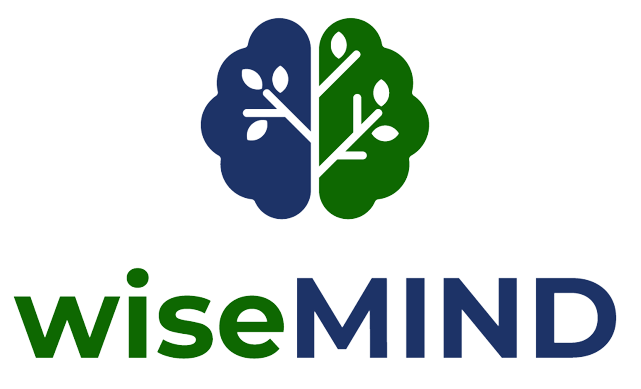
Understanding Depressive Disorders
Depressive disorders are a group of mental health conditions characterized by persistent feelings of sadness, hopelessness, and a lack of interest or pleasure in activities once enjoyed. These disorders can significantly impact daily functioning and overall quality of life. AtwiseMIND, we emphasize a compassionate and comprehensive approach to understanding and treating these conditions.
Types of Depressive Disorders
1. Major Depressive Disorder (MDD): Often referred to simply as depression, MDD involves severe symptoms that interfere with a person’s ability to work, sleep, eat, and enjoy life. Symptoms must be present for at least two weeks and can include persistent feelings of sadness, fatigue, changes in appetite or weight, and difficulty concentrating.
2. Persistent Depressive Disorder (PDD): Also known as dysthymia, PDD is a chronic form of depression where symptoms are less severe but last for at least two years. Individuals with PDD may experience a low mood most of the time, along with other symptoms such as hopelessness and low self-esteem.
3. Bipolar Disorder: This disorder involves periods of depression as well as periods of elevated mood, hypomania, or mania. During depressive episodes, individuals experience symptoms similar to those of MDD, but the condition is characterized by the cyclical nature of mood changes.
4. Seasonal Affective Disorder (SAD): SAD is a type of depression that occurs at specific times of the year, usually in the winter months when daylight is limited. Symptoms are similar to those of MDD and can include feelings of sadness, fatigue, and changes in sleep patterns.
Depressive Disorder Causes and Risk Factors
The exact cause of depressive disorders is not fully understood, but a combination of genetic, biological, environmental, and psychological factors contribute to their development. Common risk factors include:
- Family History: A family history of anxiety disorders can increase the likelihood of developing similar conditions.
- Trauma and Stress: Exposure to trauma or prolonged stress can trigger or exacerbate depressive symptoms
- Chronic Illness: Long-term medical conditions can increase vulnerability to depression.
Treatment and Support For Depressive Disorders
Effective treatment for depressive disorders often involves a combination of approaches:
- Psychotherapy: Talk therapies, such as cognitive-behavioral therapy (CBT), can help individuals understand and manage their symptoms, develop coping strategies, and improve their overall mental health.
- Medications: Antidepressant medications can also alleviate symptoms. Medication should be prescribed and monitored by a healthcare professional, such as a psychiatrist.
- Lifestyle Changes: Regular exercise, a healthy diet, and good sleep hygiene can support overall well-being and help manage symptoms.
- Support Systems: Building a support network of friends, family, and support groups can provide emotional and practical assistance.
At wiseMIND, we are dedicated to providing a holistic approach to treating depressive disorders. We offer personalized treatment plans and support tailored to each individual's needs, aiming to improve quality of life and promote long-term mental health.
If you or someone you know is struggling with depression, it’s important to seek professional help. Contact us at wiseMIND to learn more about how we can support you on your path to wellness.
*The information contained on this page is for informational purposes only. No material on this page is intended to be a substitute for professional medical advice, diagnosis, or treatment.*

